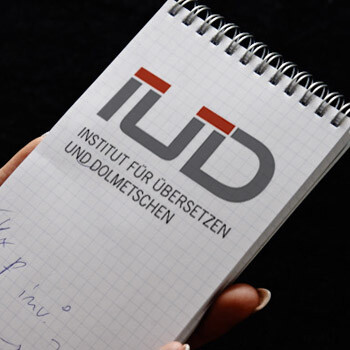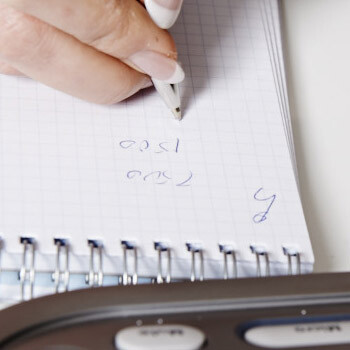Quality
Professional conference interpreters will ask the client for preparation material well in advance of an interpreting assignment. By providing information material and documents, the client makes a decisive contribution to the preparation and thus to the success of the interpretation. Useful preparation material:General information about the event: location, time, number of participants/list etc. General preparatory documents: background information on the customer (homepage), agenda, speaker lists, speaker biographies, special customer terminology, information on negotiating parties Special preparatory documents: PowerPoint presentations, abstracts, speech manuscripts, conference folder (in various languages), agenda, documents (contracts, agreements that could be quoted from), press releases, product brochures (possibly data sheets, other technical documentation) Documents to be read out, minutes of previous meetings, correspondence, draft contracts, product brochures (possibly data sheets, other technical documentation). Documents to be read out Minutes of previous meetings, correspondence, draft contracts Relevant visual and audio material and associated scripts, etc. The organizer and consultant interpreter should also consult carefully regarding the planning, handling and preparation of a planned event. A briefing with conference organizers, interpreters and speakers may be recommended in the run-up to the event. The responsible person in the team of interpreters (called team leader or chef d’équipe) will stay in contact with the client during the event in order to ensure a smooth organization process. Quality, professionalism, collegiality. The success of international events depends on the quality of the interpreting services. However quality is not a result of chance! It is created from a combination of professionalism and collegiality. In connection with conference interpreting this means that the interpreters hold a corresponding qualification from their training, have maintained this through continued education, are continually expanding their general and specialist knowledge (lifelong learning), take their professional responsibilities seriously and prepare carefully for each client and interpreting assignment. Conference interpreters need to work together as a team for the sake of the quality of the interpreting services, support one another and treat each other with fairness and transparency in order to thus ensure the success of a multi-lingual event for the client. Titles such as “conference interpreter”, “simultaneous interpreter”, “liaison interpreter”, “interpreter” etc. are not protected job titles. Professional associations for conference interpreters offer a basic guarantee for the professionalism of their members by requiring specific admission criteria. Their members also undertake to uphold rules of professional and honourable conduct for conference interpreters that detail the principles of professional and collegial conduct such as confidentiality, transparency and careful preparation. Through such professional and honorary codes and through their admission procedures, the professional associations actively pursue quality assurance and thus provide orientation in a heterogeneous market. * With the kind permission of VKD im BDÜ e.V.








